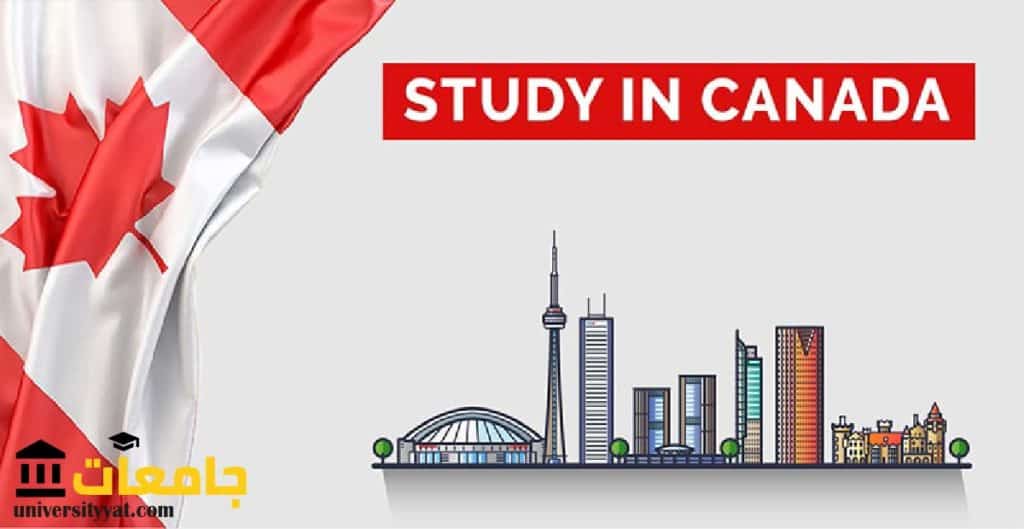If you are international student interested Learn about the steps and conditions for studying in CanadaThere are some important things you need to know and the steps you need to follow. The following step-by-step guide will provide you with all the information you need to begin your study abroad journey, apply to Canadian universities, and navigate through the visa application and travel procedures. Follow our "Study in Canada" guide to successfully begin your journey in Canada.
See: How to get a student visa to Canada? Here's how.
Study in Canada and Choosing a University
Choosing a university First step Important for students considering studying in Canada. In Canada, the country is divided into different regions. Each region not only has its own educational system, but Its own official language For example, English is the official language of Ontario, while French is the official language of Quebec.
For this reason, the language of instruction at Canadian universities may vary depending on the location. You should be aware of the language of instruction when deciding on your university. This step can be time-consuming, and as we mentioned before, it is the most important part of your journey.
Explore the full list of Canadian university locations on the website. universitystudy.ca It is a national organization representing 97 public, private, not-for-profit universities and university-level colleges in Canada.
Choosing a major
Once you have created your list of universities, it is time to To choose your course or academic specialization There are a variety of courses at each university, and it is important to choose the program. The right one for you .
Unlike some countries Like Sweden or Finland where student applications are centralized on one website regardless of their university and program, in Canada, every university handles applications itself. This simply means that each Canadian university has its own application portal, deadlines, required documents, etc. …
This information (available courses, deadlines, application portal, required documents, etc.) can be easily found on the university's website. As an international student, you must meet certain basic requirements, which may vary between degree programs.
Educational background and language proficiency information is required for all students. If the student is applying for a master's degree, they must have completed a bachelor's degree. Similarly, doctoral applicants must have completed master's degree programs.
Language test for study in Canada
In Canada, many universities will require you to upload a language proficiency test when applying to any degree program. Before you start submitting your application It is necessary Take these tests in your country .
The required language depends on the university and its language of instruction. Students will need to be proficient in: English or French , depending on the university. If your native language is the same as your language of instruction, you will not be required to have such a test to study in Canada.
Applying for majors
Once you've decided on a university, you'll need to apply to the appropriate program. Since many universities' application deadlines are a year before the student's start date, it's important for international students to apply early. Each university will have different rules for applying, so take some time to read these requirements before completing your applications.
While specific expectations may vary between universities, most students will need the following for the application process:
- Identification documents such as birth certificate, marriage certificate (if applicable), and passport.
- Educational documents such as school transcripts and diplomas.
- Results from the language proficiency test.
- Completed college application.
- A non-refundable application fee, which typically ranges from $100 to $250.
It's important to check the application requirements for your chosen program. Since each program has its own requirements, the above list may not cover your intended program's requirements.
Study visa in Canada
International students must apply for study permits before traveling to Canada to study. To apply for a Study permit Students must have Acceptance letter From a university listed on the DLI (Designated Learning Institution) list. A DLI university is An institution approved by a provincial or territorial government in Canada to host international students. If the acceptance letter is not from one of these schools, the study permit application will be rejected.
You must complete your study permit application before traveling to Canada. A study permit is not the same as a visa. International students will need either a visitor visa or an electronic travel authorization to enter the country.
Study permits are issued to cover the duration of the study program plus an additional 90 days. These 90 days are added to allow students to either prepare To leave Canada or apply for the necessary visas Required to extend their stay after graduation.
Scholarships in Canada
Students can apply for scholarships to help cover the cost of studying in Canada.
For some scholarships, you'll be automatically considered. These are called admission scholarships. For others, you must apply. Check your university's "Financial Aid" page on its website for more information about what they offer as scholarships.
Preparing to travel
Preparing for a long-term trip will require a lot of planning. Here are some tips to help you prepare for university life in Canada:
- Ensure your passport does not expire during your university studies by obtaining an updated passport.
- Apply for a study permit, travel visa and work visa (if applicable).
- Explore and discover transportation in Canada.
- Secure copies of important documents, such as medical records and ID.
- Use the app ArriveCan Mobile application to update mandatory travel information required for your entry to Canada.
- Make financial plans. Some banks (such as Scotiobank The opportunity to open an international account online before arriving in Canada. You can make transfers to it from your home country.
- Put the finishing touches on Housing arrangements Yours, whether you plan to stay on campus or find an apartment nearby.
In addition to managing the details mentioned above, take some time to learn all you can about life on and off campus at your university and your future region. This will help ease your transition as an international student. Your university's admissions and student life departments are a great resource to answer any questions you may have.
Arriving in Canada
There are several essential things you need to take care of when you first arrive in Canada. These include:
- Buy SIM card For your phone.
- Apply for medical insurance. Do it as fast as you can! This is very important, as you can't predict when you'll feel unwell. Feeling sick away from home for the first time can be extremely stressful. Most Canadian universities offer health insurance packages for international students.
- Apply for a Social Security Number .
- Get Letter of introduction to the port of entry .
Make sure you have all your essential documents in order, as this will help ensure a smooth entry into Canada.
First day
As an international student, you should take full advantage of everything student life has to offer. Attend all classes, introduce yourself to other students, and immerse yourself in the university experience. This will help ensure your success as a college student. Canada is a very safe and tolerant country. Studying in Canada will be a life-changing experience.
Working while studying in Canada
International students may work part-time while attending university. Students may apply for on-campus or off-campus jobs. If you intend to work while studying, it is important to apply for an appropriate work visa.
Minimum wage varies by region. Student pay is based on the minimum wage in the area and the specific skills required for the position.
Life in Canada
Canada is not just your university or your daily commute from home. Canada is bigger, broader, and much more. For an international student, You have a lot on your plate .
“Culture shock” is a term that often refers to the feeling international students experience when experiencing a different culture for the first time. All international students can expect to experience some degree of culture shock in their first few months abroad. This is why you need to start familiarizing yourself with Canadian culture. before Leaving home. This is a must if you are coming from a third country.
If you find yourself unsure about how something works in Canada, don't be afraid to ask questions. Your university administrators and local students are usually open to sharing their insights to help ease the transition.
It may be helpful to find a group of international students, as they can better understand your exact situation. Older international students may be able to provide you with tips to help make your university experience a great one.










